Got High Ceilings? Here's How to Actually Use That Empty Wall Space
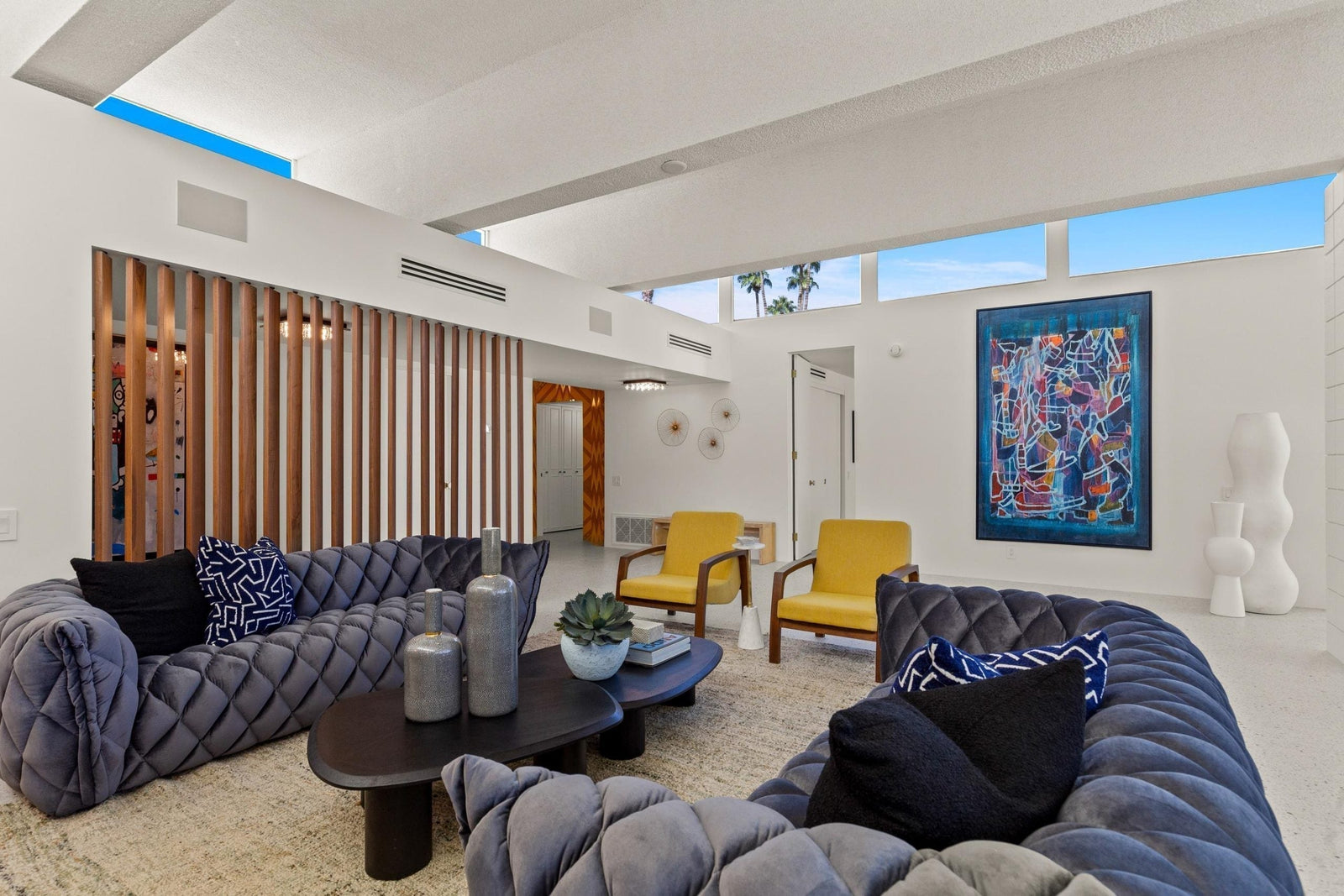
There is no denying the elegance of a high ceiling. It creates a sense of openness, floods a room with natural light, and can even add value to your home.
But along with all that grandeur comes a surprisingly common challenge: what do you do with all that blank wall space?
Many homeowners feel stuck, unsure how to decorate walls that stretch 10 feet or more. Standard wall decor often feels dwarfed or out of proportion.
The good news? You don’t have to leave that space feeling cold and unfinished.
From oversized art to vertical storage and decorative elements like wall paneling, here are eight design strategies that bring both beauty and function to your tall walls.
1. Oversized Art and Vertical Gallery Walls
Oversized Artwork
Filling the negative space created by high ceilings starts with scale. A single large canvas or oversized print can visually anchor the room and prevent the space from feeling empty or top-heavy.
Artwork that’s at least 36 inches wide helps maintain proportional balance in rooms with soaring heights.
It’s important to choose pieces that align with the room’s design style, whether you lean modern, bohemian, minimalist, or transitional. To further enhance height, go for vertical formats such as tall botanicals, portraits, or geometric designs that echo the room’s vertical stretch.
Vertical Gallery Walls
Another option is to build a vertical gallery wall that draws the eye upward. Arrange frames in stacked columns or tall, narrow grids to create structure along staircases or double-height walls.
You can mix frame sizes and orientations for a more eclectic look or keep things uniform for a clean, minimal effect. Either way, the key is guiding visual flow upward, not just across.
Framing and Placement Tips
To keep everything cohesive, stick to a consistent frame color scheme.
When arranging, place the lowest frame at standard eye level and work your way up. Maintaining even spacing between frames, two to three inches apart works well for a polished and contemporary aesthetic.
2. Add Wood Paneling For Added Texture
What They Are
Wood slat panels are decorative wall treatments made with evenly spaced vertical slats, often backed with acoustic felt. These panels are commonly available in modular widths like 12 and 24 inches and are designed for easy DIY installation using adhesive or screws.
Why They Work for Tall Walls
The vertical lines of wood slat panels visually stretch your wall even more, but in a way that feels grounded and dimensional. They add texture without clutter, making them perfect for minimal or modern spaces.
There are also some companies that offer 9-foot tall wood panelling which are great on high ceiling areas.
On a functional note, acoustic-backed panels can reduce echo and reverberation by up to 100%, making large spaces feel more inviting.
Where to Use
Install wood slat panels behind TVs, beds, or entry walls to create high-impact focal points. They're also great for fireplace surrounds or framing out shelving units. Because they’re modular, you can scale up or down depending on how dramatic you want the effect to be.
Style Tips
Use rich wood tones for warmth, matte black for drama, or pale woods like oak for a breezy, Scandinavian-inspired vibe. For an upgraded finish, try backlighting the panels with LED strip lighting to create layered ambiance.
3. Add Paintable Wall Paneling
What They Are
Paintable wall panels are made of MDF or polyurethane and come in dimensional designs like grooves, fluting, or geometric motifs. These panels are easy to cut and install with nails or adhesive, and they’re designed to be painted any color you choose.
Benefits
These panels are ideal for hiding imperfections on large wall surfaces and offer complete color flexibility.
Design Ideas
You can paint them the same color as your wall to create a subtle, shadowed effect, or use a bold contrasting color for a striking design moment. In low-light rooms, consider a high-gloss finish to highlight grooves and catch the light for added dimension.
Where to Use
These wall panels shine in stairwells, bedroom accents, bathrooms, and formal dining spaces. They’re especially good in homes that favor farmhouse, transitional, or even Art Deco-inspired interiors.
4. Floor-to-Ceiling Curtains
Why They Work
Long, flowing drapes help soften vertical lines and create a sense of continuity from floor to ceiling. They’re also great for framing large windows and reducing echo in tall, open rooms. Beyond aesthetics, curtains can also provide insulation and improve energy efficiency in window-heavy rooms.
Fabric and Style Choices
Sheer fabrics keep things light and breezy, while velvets bring a dramatic and upscale touch. If you want to add visual structure, go for vertical stripe patterns, which can elongate short or squat windows and enhance ceiling height even more.
Hanging Tips
Mount curtain rods as close to the ceiling as possible to emphasize height. Let the fabric either graze or slightly puddle on the floor for a tailored look. Hanging curtains 6 to 12 inches above the window can make your walls appear up to 10 to 15% taller.
(source: https://www.potterybarn.com/tips-and-ideas/curtain-buying-guide/)
5. Built-In or Tall Open Shelving
Functional Vertical Design
Tall shelving isn’t just practical, it’s perfect for accentuating a high ceiling. Whether you're storing books or displaying vases, sculptures, or greenery, vertical shelves double as decor.
Built-ins can also be used as room dividers in open layouts without breaking sightlines.
Design Considerations
Go with symmetrical layouts for traditional spaces, or use asymmetrical setups to keep things more modern. Mixing shelf spacing adds movement to the wall and prevents the look from becoming repetitive.
Bonus Feature: Ladder
For both function and style, consider adding a sliding or decorative ladder. It adds charm and makes upper shelves accessible. Built-in shelving is one of the most sought-after upgrades in home resale and staging, increasing perceived value by up to 5%.
6. Wood Slat Room Dividers as Wall Accents
Creative Repurposing
Freestanding room dividers aren’t just for dividing rooms. You can use them as sculptural wall art by leaning or mounting them on a blank wall. Some people even remove the hinges for a cleaner, more customized look.
Visual Impact
Wood slat room dividers used in this way add vertical rhythm and a semi-permanent architectural detail to your space. They’re perfect for wide, bare walls where a gallery wall might feel too busy or cluttered.
Flexible and Non-Invasive
For renters or seasonal decorators, this is a flexible solution. You can move or rotate the divider to different rooms or angles depending on your needs.
Placement Ideas
Place slat dividers behind entryway benches, console tables, or beds for a grounded focal point. You can also layer two next to each other to create a faux feature wall that makes use of width and height.
7. Hanging Sculptures or Mirrors
Vertical Sculptures
Sculptural art that adds dimension or casts shadows can enhance your wall’s visual interest. Use metal, wood, or mixed media, and group them in pairs or trios to create rhythm and balance. This method works especially well for tall entryways or staircases.
Tall Mirrors
Mirrors reflect both natural and artificial light, helping a room feel larger and more open. Leaning or vertically mounted mirrors work well in narrow spaces. Strategically placing mirrors near windows can increase daylight effectiveness by up to 30%.
Groupings
Use clusters of mirrors or sculptures to create vertical columns. This technique adds energy and symmetry without overwhelming the wall with too many pieces.
Conclusion
A high ceiling is a beautiful asset, but it needs thoughtful design to feel intentional and inviting. The right mix of strategy and and creativity will transform vertical emptiness into something full of character and warmth.
Whether it’s a large piece of artwork, elegant drapery, or the depth and texture of wood slat panels, you have options that work with any budget or style. Start with what feels most impactful to you, whether that's behind a sofa or flanking a tall bookshelf, and build upward.
Don’t feel pressured to fill every inch at once. The best results often come when your space evolves over time with layers that matter.
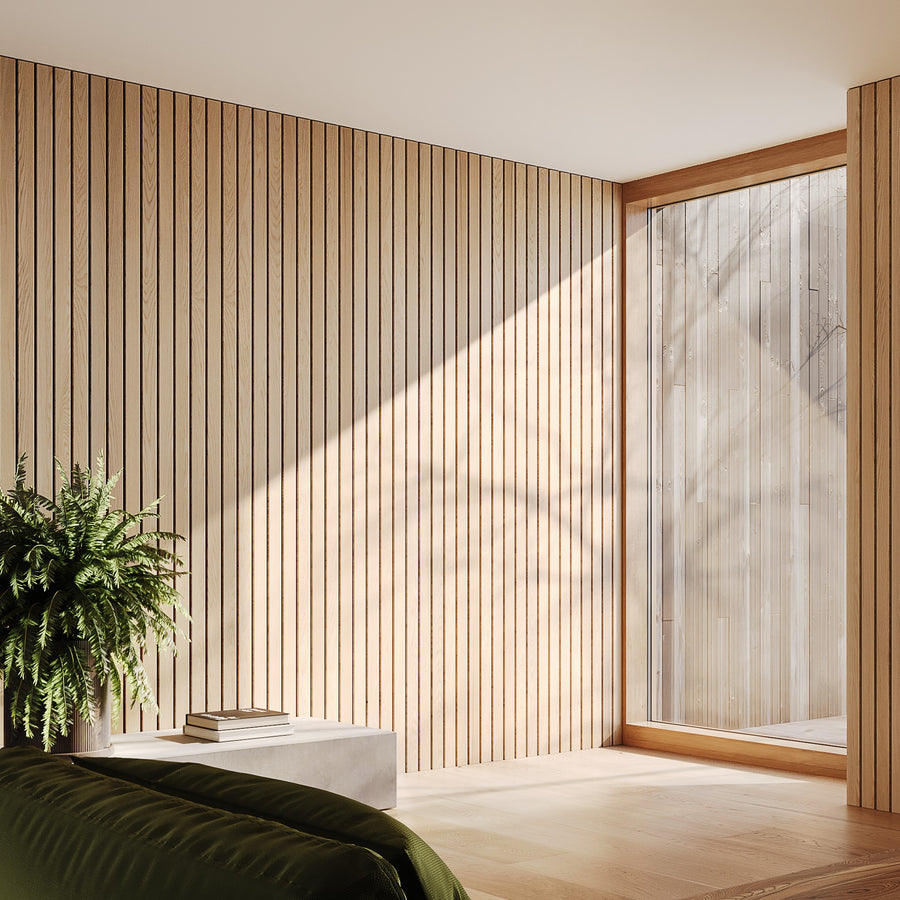
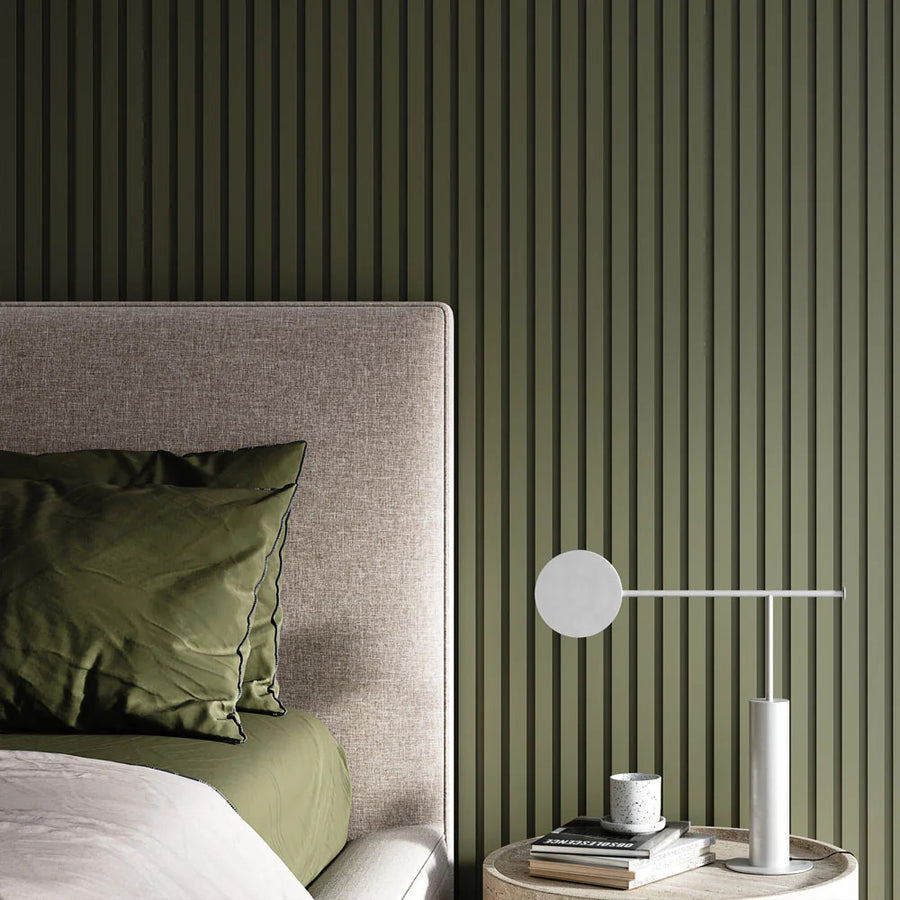
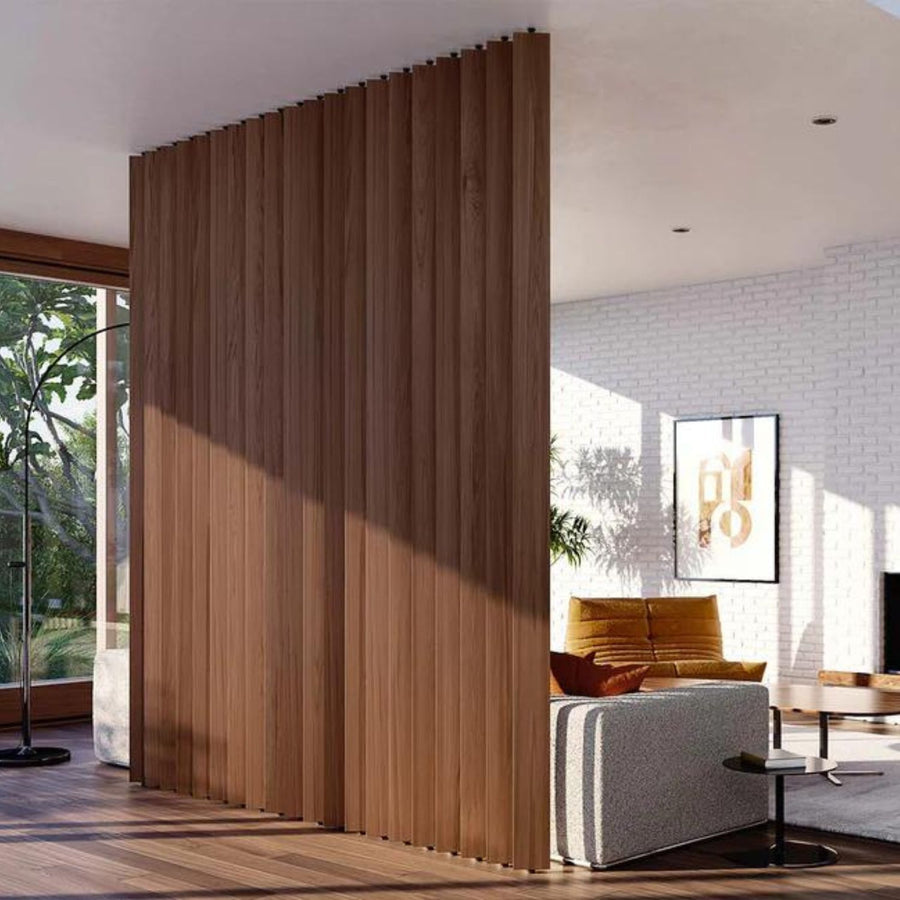
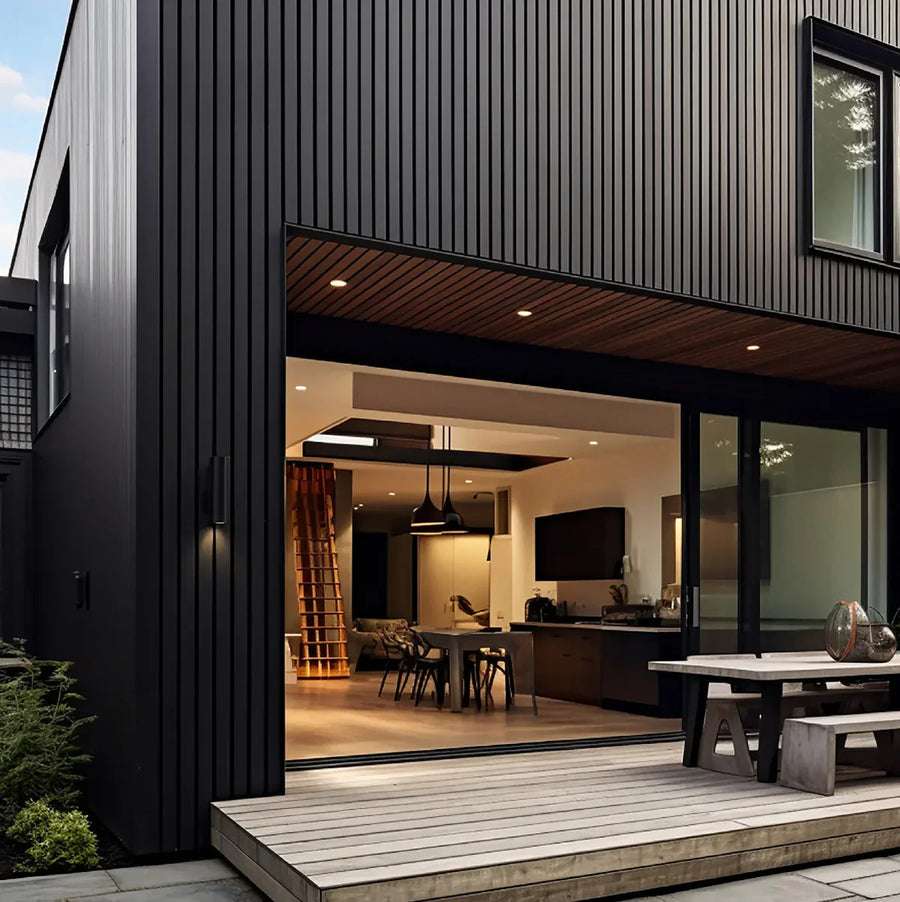
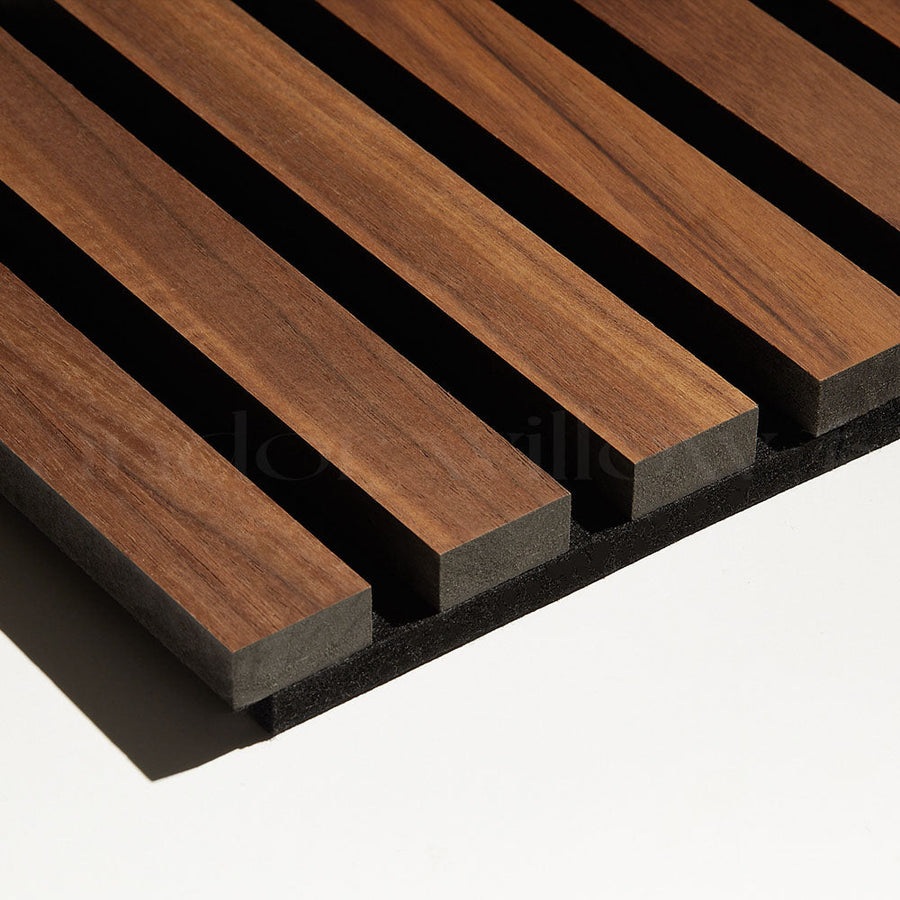
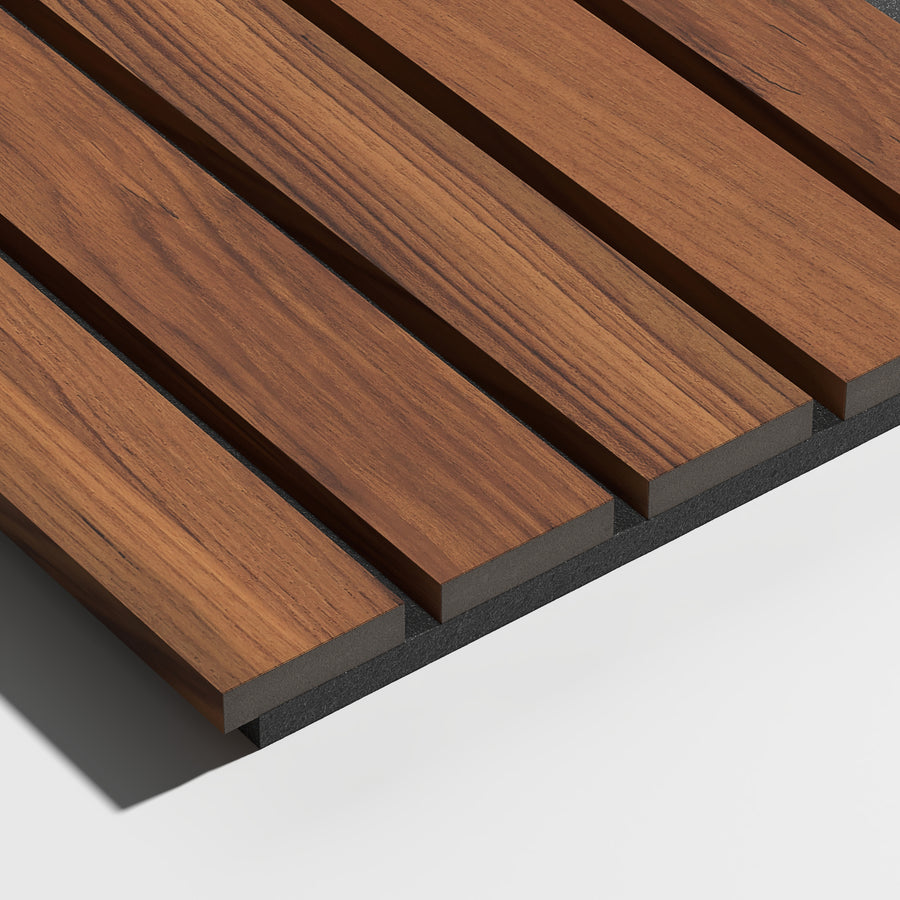


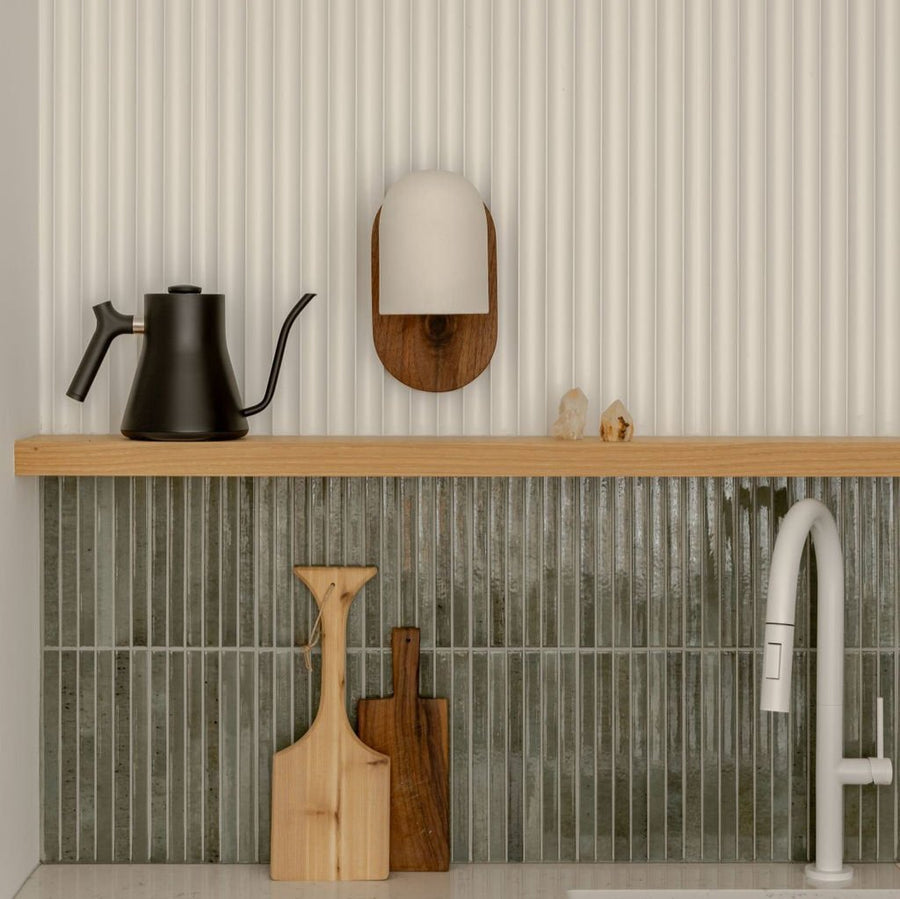
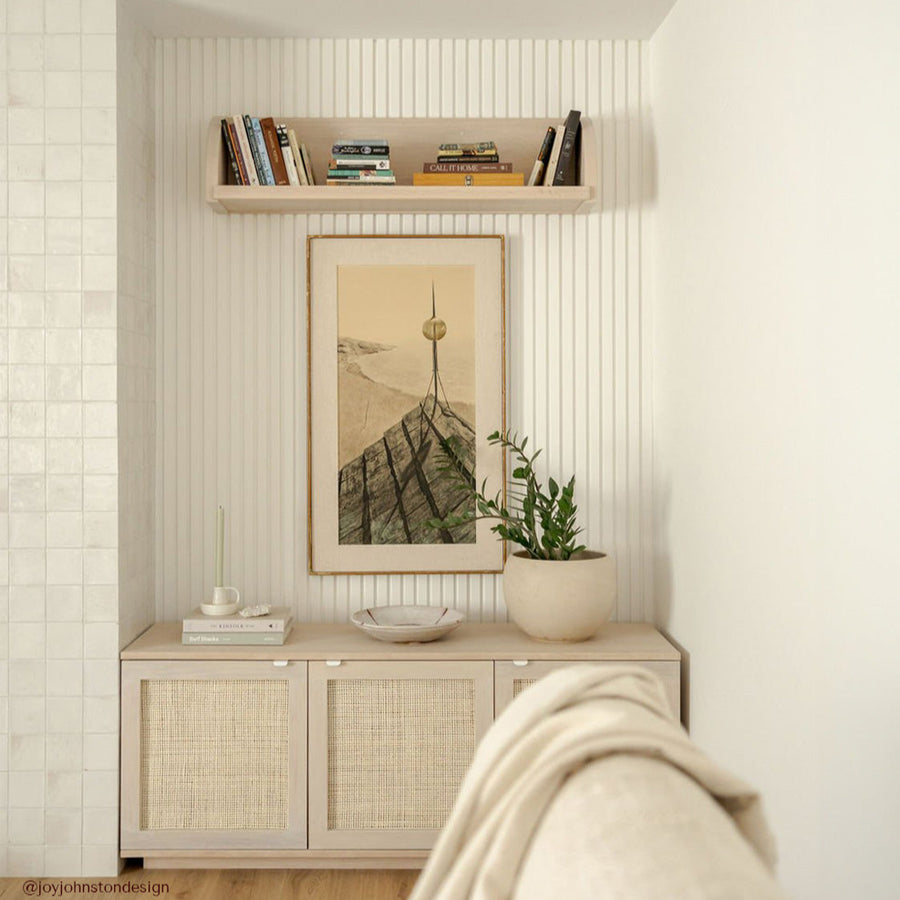
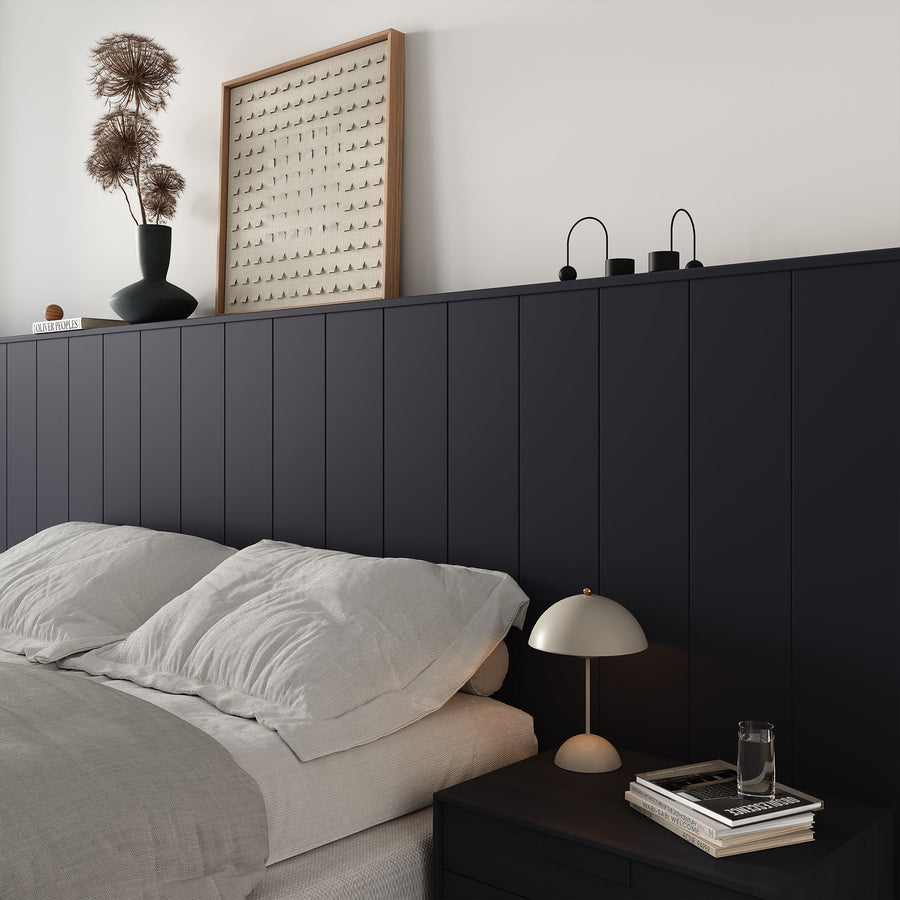
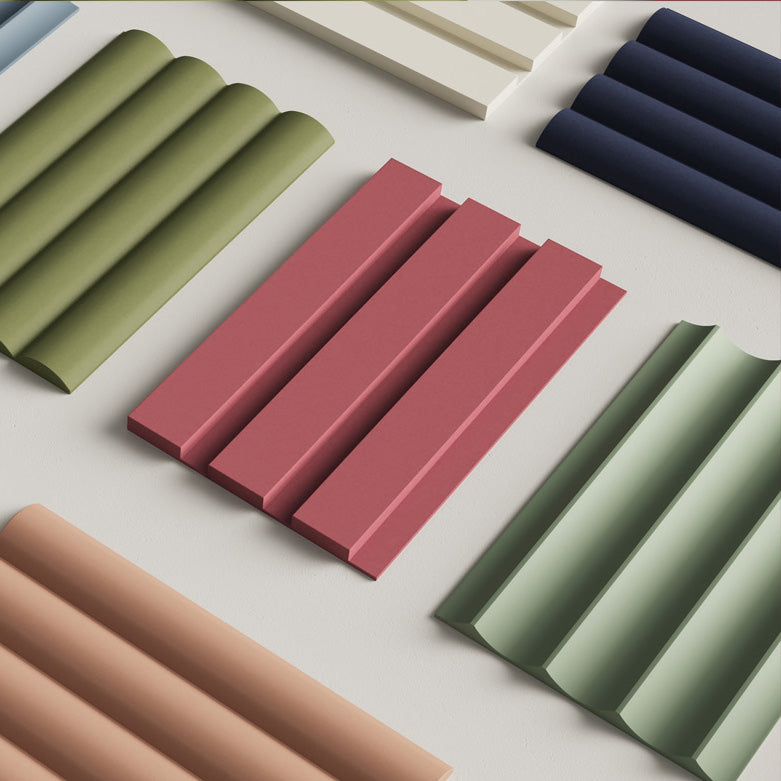


























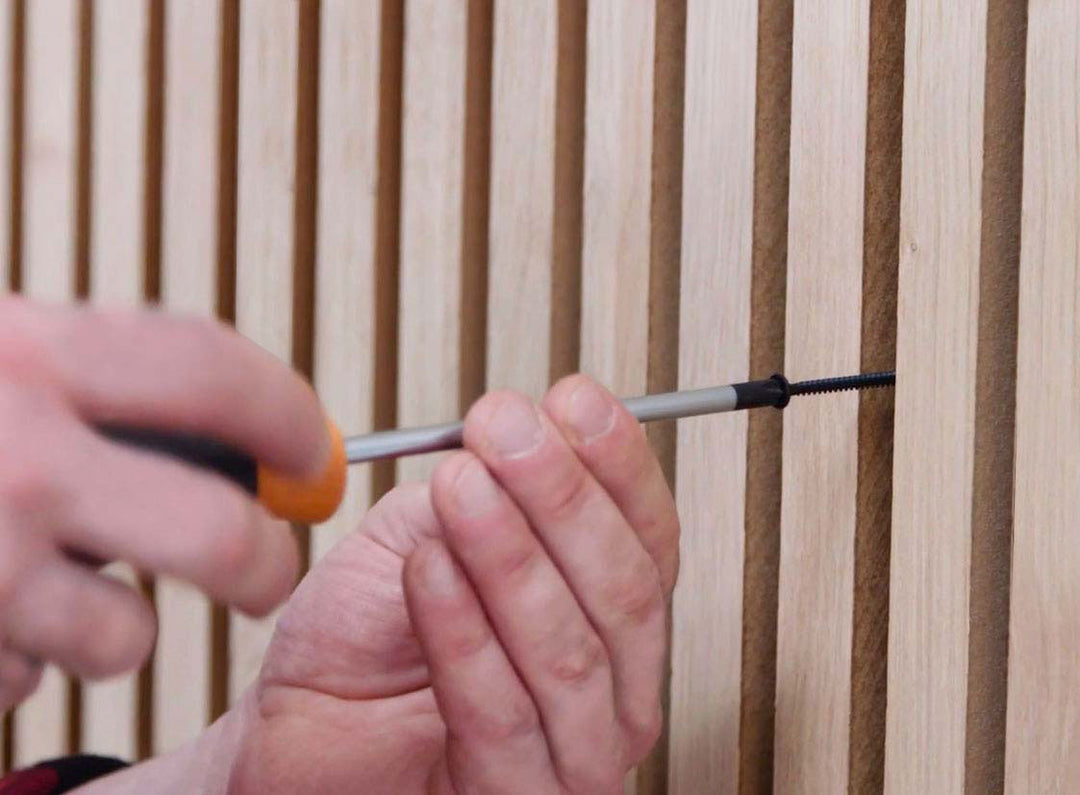

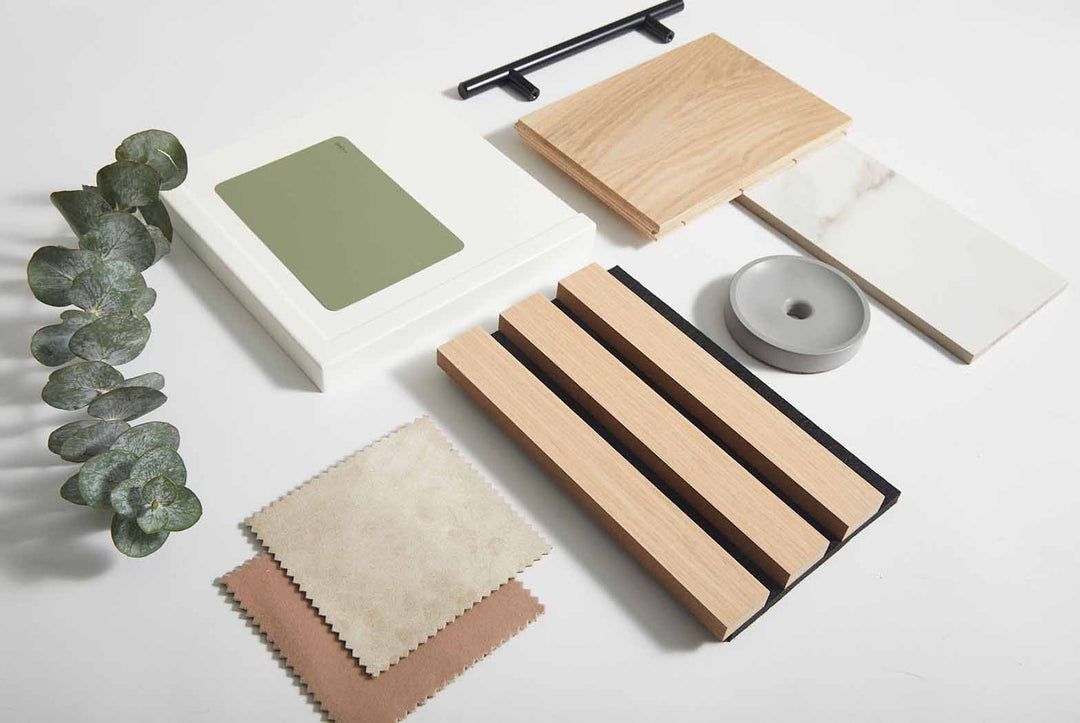
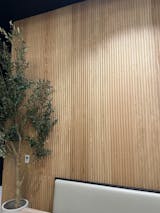
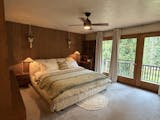










Leave a comment